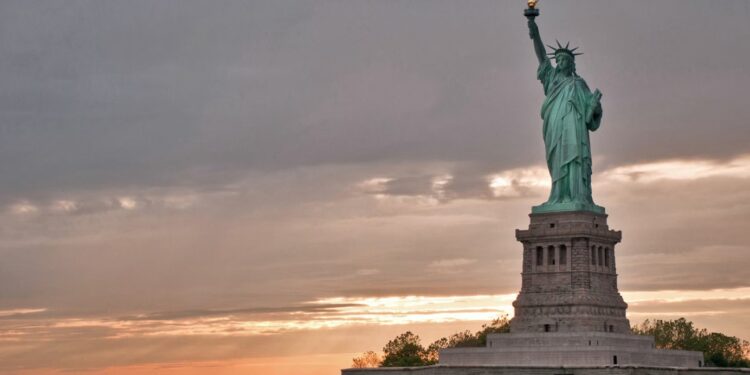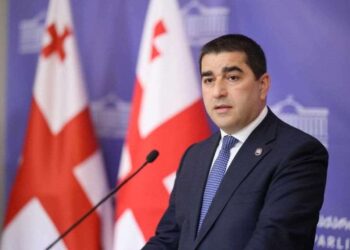A French politician has made a bold statement calling for the return of the Statue of Liberty, arguing that the United States no longer embodies the values that led France to gift the iconic statue in 1886. Raphael Glucksmann, a member of the European Parliament and a prominent center-left figure, raised this controversial issue during a convention for his political movement, Place Publique.
Glucksmann’s call for the statue’s return was framed as a response to what he perceives as a shift away from the democratic ideals originally celebrated by both countries. “Give us back the Statue of Liberty,” he said, addressing a crowd of enthusiastic supporters. He further criticized the U.S. government, accusing it of aligning with oppressive regimes and dismissing scientific freedom.
“We gave it to you as a gift, but apparently, you despise it,” he added, suggesting that the statue would be better placed in France, where its symbolic values are still cherished.
The Statue of Liberty, designed by French sculptor Auguste Bartholdi, was a gift from the people of France to the United States, celebrating the centennial of American independence. Since its unveiling in New York Harbor on October 28, 1886, the statue has stood as a powerful symbol of liberty and friendship between the two nations. While the U.S. is home to the grand statue, Paris also has a smaller replica located on the Île des Cygnes in the River Seine.
Glucksmann, a vocal advocate for Ukraine in its conflict with Russia, has been particularly critical of former U.S. President Donald Trump’s policies. He pointed to Trump’s significant changes in American foreign policy and his controversial decisions to slash funding for research institutions. These actions, Glucksmann argued, have undermined the values that contributed to America’s global leadership, particularly in the realms of science and innovation.
The French politician also highlighted the broader implications of Trump’s actions, noting that his administration’s cuts to federal research funding and its efforts to reduce the size of the federal workforce could drive away some of the U.S.’s most talented researchers. Glucksmann suggested that France could serve as a refuge for these professionals, offering them an opportunity to continue their important work in a more supportive environment.
Glucksmann also took aim at the rise of far-right leaders in France, accusing them of aligning too closely with figures like Trump and Elon Musk, both of whom have been criticized for their influence on public policy. In his view, these leaders represent a shift toward policies that prioritize individual wealth and power over collective well-being and democratic values.
While Glucksmann’s remarks have stirred controversy, they also raise questions about the evolving nature of international alliances and the shifting political landscape in both Europe and the United States. His call for the Statue of Liberty to return to France is less a literal demand than a symbolic gesture aimed at challenging current political trends. It serves as a reminder of the shared history and values that once united these two nations and the ongoing debates over the preservation of democratic principles in a rapidly changing world.














